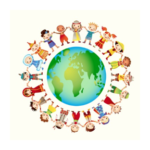Culture is…
a learned, interrelated, adaptive, shared, symbolic, dynamic, transmitted and constantly moving entity that most often facilitates discussions and communication. The word culture is from the Latin word cultura which derives from the Latin word colere. Its root meaning ‘to cultivate’ references patterns of human activities, symbols and structure and mental capacity. We are all shaped and defined by our experiences seeing the world and reacting through those experiences. Culture is, in the words of E.B. Tylor:
“…that complex whole which includes knowledge, belief, art, morals, law, custom and any other capabilities and habits acquired by men and women as members of society.”
Culture takes time to develop, is transmitted across generations, and is subject to change. Culture cannot be isolated. Culture is essential for society’s life work. People in our world all come from an ethnic background, whether White American, African American, American Indian, or Hispanic, etc. Experiences and perceptions represent the values and decisions that are made in our life circumstances. Culture and individual beliefs are capable of affecting the principle and reasoning in every ‘area’ of thinking. A person’s culture is based upon numerous aspects such as race, history, geography, religion, and language. All of these things play a different part in culture and affect reasoning in a variety of ways.
Culture is a very persuasive and potent factor in the ways of our individual beliefs, and thoroughly plays an impact on our society today, as well as dating back hundreds of years. It is what makes our society, creating a basis for our beliefs, influencing our thinking, and playing a very influential and immense role on the conclusions we reach as individuals. There are diverse cultures all around the world, and all are influenced by various societal factors. For instance, religion, physical environment, inspirational people (activists, presidents, and humanitarians), scientific affairs, and other numerous aspects in culture can dominantly inspire and manipulate what we think and why.
Cultural diversity is not a one size fits all topic. As with any topic, we each take away something different. Within the following podcast, we will explore this dynamic topic, why it deserves a seat at the table and what culture has to do with our work.
To explore more about culture and cultural diversity, check out the Professional Development page. Look for the “Cultural Diversity Podcast Series” (which includes this podcast), “Responding to Diversity”, and other job aids such as “Young Children and their Families Experiencing Homelessness” and “Lots of Ways to Listen”.
(n.d.). Retrieved from Wikipedia: https://en.wikipedia.org/wiki/Edward_Burnett_Tylor
Farooq, U. (2011, August 12). Social Sciences. Retrieved from studylecturenotes.com: http://www.studylecturenotes.com/social-sciences/sociology/112-what-is-culture-
Free Essays. (2010, September 19). Retrieved from anyfreepapers.com: http://anyfreepapers.com/free-essays/culture-individual-beliefs-essay.html
Oak, M. (2016, September 2). Retrieved from Buzzle Website: http://www.buzzle.com/articles/characteristics-of-culture.html

